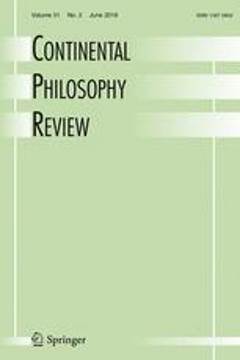Repository | Journal | Volume | Articles

(2018) Continental Philosophy Review 51 (2).
The real of the rabble
Žižek and the historical truth of the Hegelo-Lacanian dialectic
Zachary Tavlin
pp. 269-288
In this essay I attempt to answer a fundamental question about Žižek’s heterodox reading of Hegel’s dialectic: What project sustains this reading in the first place? That is, what is at stake for Žižek himself? The purpose of this essay is to develop in this fashion a reading of Žižek (since he does not programmatically answer this question), although not one that is necessarily meant to compete against other alternatives. My argument, then, is that Žižek’s ontological and hermeneutical project is ultimately political, that when Žižek says we need Hegel “now more than ever,” he has a political situation in mind. By finding an element of Hegel’s thought, the political subjectivity of the “rabble,” that resists the traditional picture of dialectical system (especially the critical picture of the post-structuralists), Žižek can overturn the distinction between Hegelian method and system by suggesting that there’s no comprehensible distinction at all. And by politicizing Hegel and drawing out the seeds of Lacanian thought that were nonetheless incomplete until Lacan, Žižek’s historiographical project takes on the character of ideological critique. As such, Hegel and Lacan reach us anew, as theoretical players in an anti-postmodern political gambit.
Publication details
DOI: 10.1007/s11007-017-9413-9
Full citation:
Tavlin, (2018). The real of the rabble: Žižek and the historical truth of the Hegelo-Lacanian dialectic. Continental Philosophy Review 51 (2), pp. 269-288.
This document is unfortunately not available for download at the moment.



